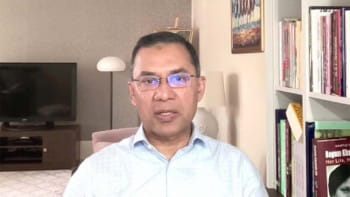The inhuman power

Albert Einstein said, "Two things are infinite: the universe and human stupidity, and I am not sure about the universe."
When the talk of the world is artificial intelligence (AI), a group of western industry leaders recently warned that the AI technology they were building might one day pose an existential threat to humanity and should be considered a societal risk on a par with pandemics and nuclear wars. AI is a human-created skill that implants intelligence in machines that think like humans. This is capable of taking major decisions without human inference.
As humans, we are emotional creatures. Emotions influence us to choose our friends and partners, to stay with them, and to share good and bad days. Emotional intelligence is an impulse that binds and manages the power of human emotions or feelings. Researchers agree that AI cannot have its own emotions, but it can mimic them. In fact, when we talk about AI, all that comes to mind is machine learning, robotics, and networks. It is more focused on big data and analytics, while emotional intelligence is concerned with human relationships and interactions. While machines can replicate and perform tasks perfectly, they lack consciousness and the emotional qualities that make a humanoid kind. Besides this, experts also expressed worries that raised governance concerns.
Some studies argue that geopolitical and economic competition are the main drivers for AI developers, while moral concerns take a back seat. Some scholars believe the negative effects of AI include unemployment, biases, and dangers to privacy. AI could harm the physical and mental health of millions via the social determinants of health through the control and manipulation of people.
While the world feels heavy with thousands of man-made problems and more than three-fourths of the world's population is still struggling for a decent life, as Elon Musk's AI rightly said, it is not "necessary for anything we are doing". Musk, an early backer of the AI startup, explained superintelligence as a double-edged sword. The world needs to make sure that everyone—and not just people who are well-off—pays back from artificial intelligence.
E-mail: rubaiulmurshed@shomman.org


 For all latest news, follow The Daily Star's Google News channel.
For all latest news, follow The Daily Star's Google News channel. 



Comments